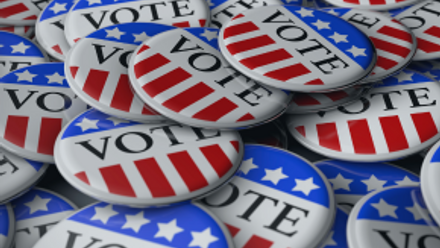Emotional Wellness Month
Until the beginning of 2020, I thought "pandemic" was just a word used in exclusion clauses of contracts. That it would be a real thing that impacted the lives of everyone on the planet was a remote concept to me. Then along came the Coronavirus. I was still in that state of denial until making my way through the Atlanta airport on the way home from NACA Live 2020 in Denver, Colorado. It was the first time I saw people around me wearing masks. Granted, there were only a few of them, but enough to make me realize the Coronavirus had the potential to change life as I knew it. I soon learned how impactful those changes would be on work life, social life, and family life. What I didn't expect was the emotional impact it would have, not only on me, but others including those in higher education.
Having had my share of challenges and adversities in life, I assumed I had developed the resilience to cope with changes in my normal routine. The signs that the stress from the pandemic was having an emotional impact on me were so slow and subtle, I didn't even recognize it was happening at first. I was that person who should be there to give emotional support, not the one in need of it.
It also became evident that many others were experiencing the stress and uncertainly that came with the pandemic. Based on feedback and data from NACA members and volunteers, it is no surprise that, an article published by the American Council on Education stated, "Many (higher education professionals) are trying to keep a sense of normalcy despite experiencing their own uncertainties, fears, and anxieties," or that a survey conducted by the National Institutes of Health (NIH) found that 71% of college students indicated their stress and anxiety had increased due to the COVID-19 pandemic.
Since October is Emotional Wellness Month, it seemed like a good time to share some suggestions from experts on emotional wellness as well as some of the steps I took to find my way back to a more positive emotional state.
According to Psychology Today, approximately one in five individuals suffers from a mental health episode each year, making emotional wellness a major health challenge. Being emotionally well doesn't mean being happy all the time, but rather it means coping with challenges and problems. Many of the strategies offered by Psychology Today are the same, or similar, to those suggested by the NIH.
According to the NIH, emotional wellness enables us to manage stress and adapt to difficult situations in life. Finding strategies to protect and improve our emotional health is more important than ever given the environment we have all had to adapt to over the past 18 months. The NIH provides an "Emotional Wellness Toolkit" that includes six strategies for improving your emotional health. The toolkit provides excellent suggestions for implementing the strategies listed below of:
- Developing a more positive mindset
- Managing stress
- Getting quality sleep
- Coping with loss
- Building healthy support systems
- Practicing mindfulness
Even before I did any research on emotional wellness, I had already taken action to improve my state of mind. In March 2021, after a year of having no structured exercise in my routine, I joined a Zumba class and a yoga class and signed up for sessions with a personal trainer in a gym that had distancing protocols in their exercise classroom. I committed to disconnecting from my phone and iPad earlier in the evening and going to bed earlier. I started advance planning to prepare healthier meals. I made it an intentional practice of focusing on and being grateful for the positive things in my life. The results of those efforts have been rewarding. While life has not yet returned to "normal" because of the Delta variant of the virus, I feel more in control of my own life and have a more optimistic outlook for the future. So, I know first-hand the basics of maintaining emotional wellness work.
Along with the NIH recommendations, during the month of October there will be articles and reminders from various media to remind us of the resources available year-round for those of us who want to prevent or treat issues that put our emotional wellbeing at risk. Take advantage of the availability of these resources to ensure you have the right tools in your "toolkit" to help keep you emotionally healthy through trying times.






